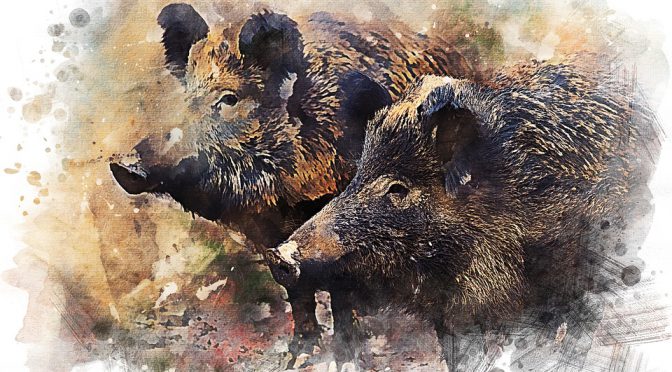Journée d’étude
Organisateurs : Équipe de recherche du CEFRES Déroutant sanglier – Aníbal Arregui, Luděk Brož, Marianna Szczygielska, Virginie Vaté & Erica von Essen (Swedish University of Agricultural Sciences)
Date : 16 & 17 octobre 2018
Lieu : Prague (adresse à préciser)
Langue : anglais
Popular media reports reveal that in many places of our planet animals considered “wild” attract significant public attention as they (re)enter into what we used to think were almost exclusively human habitats. Various birds of prey, magpies and jaybirds increasingly inhabit cityscapes. Foxes and badgers roam in suburban backyards. European rural landscapes witness a return of big carnivores such as lynxes, wolves or bears. Nevertheless, the by far most ubiquitous animal resident across European landscapes is the wild boar (Sus scrofa). It hasproliferated rapidly over the last several decades. From a human perspective, wild boars are a divisive species that is responsible for extensive crop damage, disturbed golf courses and gardens, the eradication of other species such as ground nesting birds, car collisions, and the spread of illnesses such as the African swine fever that threatens domestic pig population. In some areas the bodies of wild boars accumulate radioactive Cesium 137, acquiring the status of “not fit for human consumption”. Amidst these circumstances combined, the boar becomes a potent source of human-wildlife conflict. It seems that hunters, farmers and politicians have in their own ways declared war on wild pigs across the European continent, planning reduction of their population by 70 – 90% and calling on means such as culling, trapping, or fencing large territories (such as the entire Polish-Ukrainian border).
Yet, it is not only “the wilderness” within the physical and social landscape, nor the hunting ethics and practices that are changing rapidly. Social sciences and humanities too have undergone a fundamental reform over the several past decades challenging their own inbuilt anthropocentrism. There has been an “animal turn” in anthropology, focusing attention on “more-than-human” worlds through conducting “multi-species ethnography”. The emergence of fields of Animal Geography and Critical Animal Studies likewise reflects interest in analyzing the place of animals in the moral economy of more-than-human society. Harnessing the critical insights of these fields, we take a closer look into the porcine futures of Europe and beyond. We try to understand the changing place and role of wild boars in European sociality by examining forms of care of, towards and around pigs, necropolitics of game (and wildlife more generally) management or the techno-moral transformations of land(scape) use. Further, our ambition is also to transcend the animal context to study the ethics, discourses, and practices around wild pig management as proxies for salient societal processes today, including regimes of ownership, fire arm legislation, and animalized conceptions of otherness in relation to dystopias of “invasion” by migrants. Since as a team we are at the beginning of this exciting exploration, the main objective of the workshop is to present preliminary findings of the Bewildering Boar project to a broader group of like-minded scholars, exchange feedback on participants’ respective work and discuss potential collaboration in terms of research and publishing.
The workshop will consist of two parts. Day one will be the annual meeting of the European-based Hunting and Conservation Network. While it will focus on general hunting issues in Europe, we especially welcome substantive or conceptual focus on wild boar hunting, boar-related game management, ethics related to hybrids or invasive species, etc. Precipitating an ‘ethic of combat’ and, with it, new weapons technology, hunting forms and landscape arrangements, the advent of wild pig in Europe already has significant consequences for other game species as well as for the practice of hunting and game management as such and we can expect more in the future. Indeed, the wild boar hunting context may be seen as a nexus for processes of modernization (and counter-modernization) in hunting in contemporary Europe.
In the second day of the workshop, the focus will be on how the Eurasian wild pig has featured in human lives, and vice versa, in dynamically changing socio-environmental contexts of Europe and beyond. The goal of the second day is to put together researchers from various institutions and from various disciplines in social sciences and humanities to reflect on issues related to the wild boar and more generally to the Suidae family (including pigs, boars and hogs). It also aims to reflect on wider questions such as: How do “invasive” species influence the social contexts where they proliferate? What changes are observable in our understanding of other species as they constantly break the natural, symbolic, physical and behavioural boundaries that underpin our epistemological distinction between, for example, “wilderness” and “domesticity”? How did humans contribute to change the animality of wild pigs in the first place? Our dialogues will be enriched by guests who will bring in broader methodological and theorizing experience of focusing on other species (such as elephants, orangutans or silkworms) in the realm of anthropology, environmental history and other disciplines.

